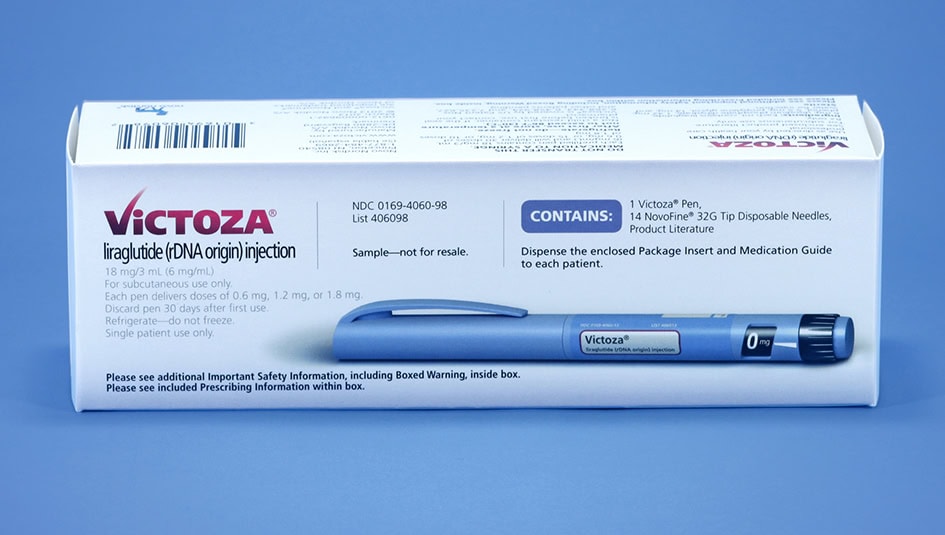Victoza Tested to Combat DKA for People with Type 1

In recent years, we have seen increasing overlap between drugs used to treat Type 1 diabetes and those used to treat Type 2 diabetes. More people with Type 2 diabetes are going on insulin therapy than in previous years, while drugs like metformin and Invokana are being prescribed off-label for people with Type 1 diabetes.
Researchers are exploring whether a class of drugs called GLP-1 agonists can be used to help people with Type 1 combat high blood glucose levels and lower their risk of diabetic ketoacidosis. GLP-1 drugs work by slowing the body’s glucagon production, increasing insulin production (when possible), and slowing the rate by which food leaves the stomach.
A recent study conducted at the Diabetes and Endocrinology Center of Western New York examined whether the GLP-1 drug Victoza could curb the production of ketones that could lead to diabetic ketoacidosis (DKA). In the study, 26 participants with Type 1 diabetes who were overweight or obese were instructed to fast overnight while continuing regular basal insulin injections. They were then given either an injection of Victoza or an injection of saline. Researchers found that those who received Victoza had lower levels of glucagon, ghrelin (a hormone that increases appetite), and free fatty acids that could lead to diabetic ketoacidosis, according to a report in MedPage Today.
The researchers are hoping the findings of this small study might be an indication that the drug may be able to help curb DKA risk in people with uncontrolled Type 1 diabetes. Researchers are exploring both GLP-1 drugs and SGLT2 drugs as add-on drug therapies to help curb high blood glucose levels. If GLP-1 drugs can achieve similar results with a reduced risk of DKA, it would offer an advantage to SGLT2 drugs, which carry the warning of DKA risk.
However, as the researchers indicated, these are very preliminary findings. It would take much more study to determine if this drug could have wider application for the Type 1 diabetes community. Also, there is the greater question of whether a new injectable drug would really improve glucose levels among those who already have poorly controlled Type 1 diabetes, as some of this patient population might already be skipping injections.
This study may be most useful in giving some indication of Novo Nordisk’s thinking about Victoza, its most profitable drug. Victoza currently is the market share leader in GLP-1 drugs for Type 2 diabetes, and for years Novo Nordisk has enjoyed runaway sales growth with the drug. Recently, however, rival GLP-1 drugs have been gaining ground, insurance payors are pushing back against Victoza’s price, and Teva Pharmaceuticals has applied for FDA approval of a generic version of the drug. To offset this, Novo Nordisk has recently been exploring ways to play up Victoza’s weight loss potential; the drug maker also has packaged Victoza with basal insulin in the drug combo, Xultophy. It would be nice for Novo’s bottom line if the drug were to be given FDA approval for Type 1 diabetes in the future, as well.
Thanks for reading this Insulin Nation article. Want more Type 1 news? Subscribe here.
Have Type 2 diabetes or know someone who does? Try Type 2 Nation, our sister publication.